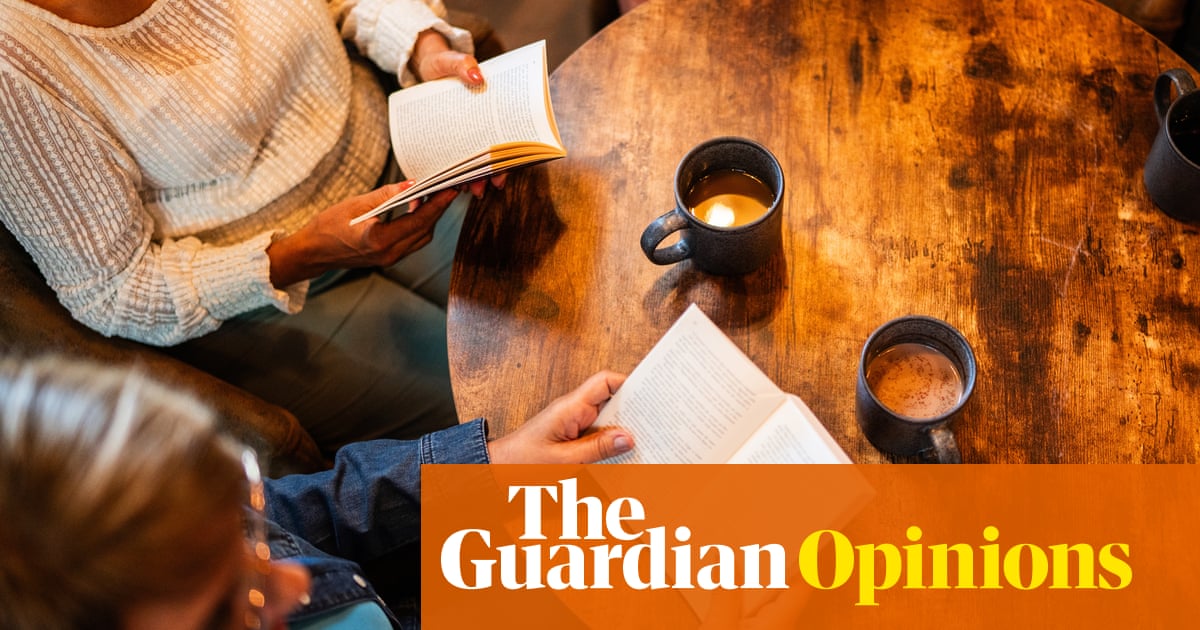Demand for silent experiences is on the rise: apparently silent book clubs, a concept launched in San Francisco in 2012, are spreading like quiet wildfire, with “1,600 chapters in 54 countries”,according to the BBC, including about 100 in the UK. In the same article, Eventbrite reported a 460% increase in silent book events organised at the beginning of 2025 compared with the same period in 2024.
Silent cafes – sacred safe spaces where you won’t have to hear about anyone’s transversal skill set, toxic boyfriend, pitch deck or hernia op – are proliferating, too. The algorithm thinks, correctly, that I would enjoy asilent reading cafe in Tokyoand there are silent cafes inOsaka,ChinaandTurkey. Silent travel was decreed a “top travel trend” last year by Condé Nast Traveller, spanning everything from full-on week-long retreats and a certified “wilderness quiet park” in Ecuador toquiet hotels,silent group walksand even discos.
This seems to me a bit like the recent interest indark skies experiencesand the reframing of darkness as desirable,a luxurypeople are willing to travel and spend for. We are increasingly aware of what has been lost in anever noisier worldfull of leaf blowers, idling engines and headphone refuseniks conducting three-way calls about their dinner options in brain-liquefying detail, and trying to recapture it.
I am completely on board: I would absolutely pay extra for a silent flight, hike, spa trip or gallery visit. Not because I am an intolerant misanthrope. I mean, I am, obviously, but I am also someone who spent six years at Quaker school, with silent meeting for worship every morning, so I’m no stranger to the power of collective hush. The thing is, it’s not just an absence, a subtraction of sound. Silence has presence and texture and atmosphere; it can feel electrifying, expansive, somnolent or simply peaceful. It’s not rejection of other people, either: a shared silence is a collective endeavour and always feels, I think, quite intimate, sometimes even moving. That’s a wellness experience I would take over any gong bath.
Emma Beddington is a Guardian columnist
